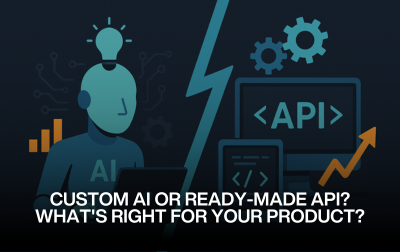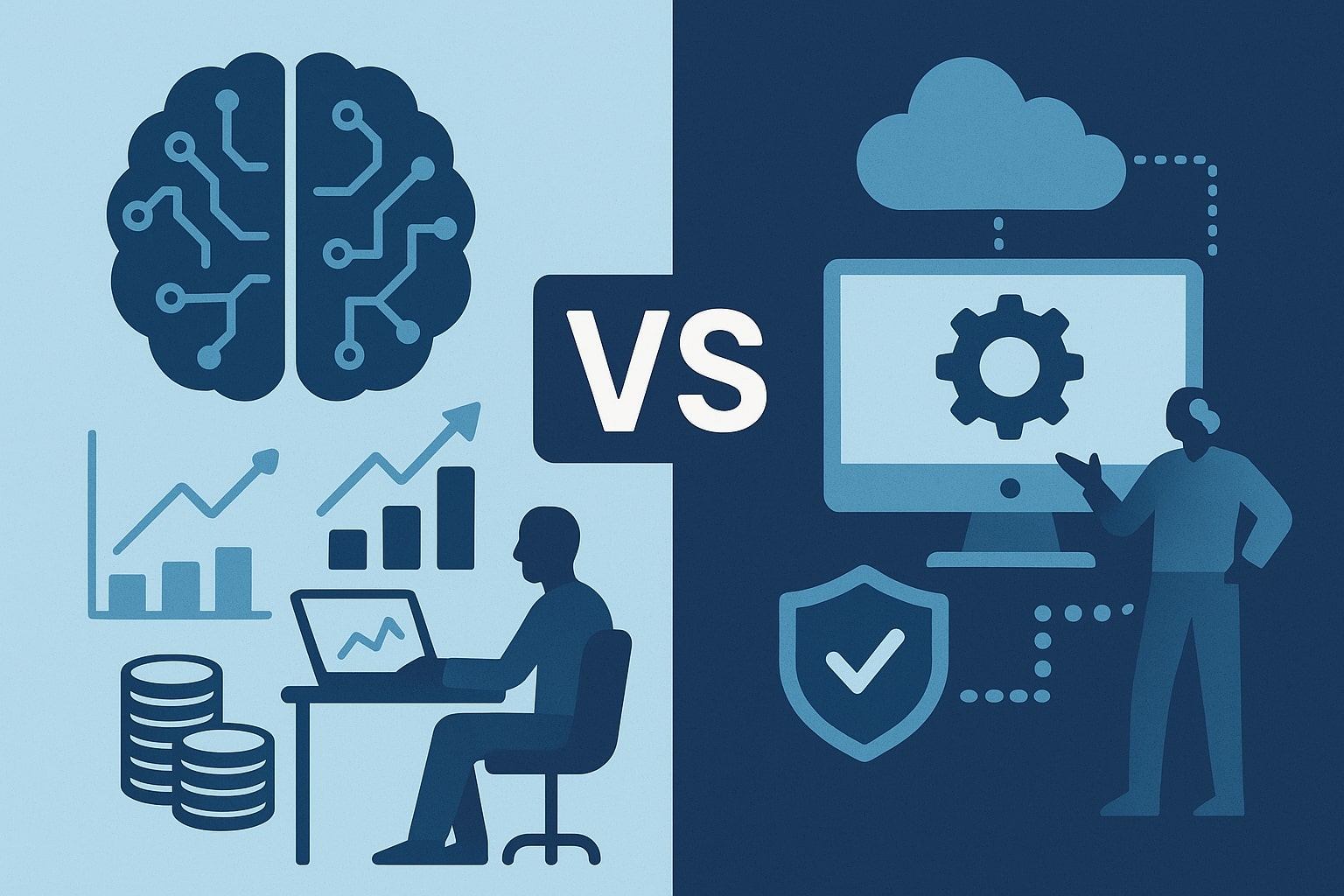
When Does It Make Sense to Develop AI In-House vs. Use an API?
In the rapidly evolving fintech sector, artificial intelligence is more than a competitive advantage—it’s becoming a necessity. From fraud detection to predictive analytics, AI empowers financial institutions to make smarter decisions, faster. However, one of the first strategic decisions companies face is whether to invest in AI development in-house or integrate third-party APIs.
This article explores the trade-offs between building and buying AI capabilities, with a focus on fintech applications like predictive analytics, and aims to help decision-makers determine the best path forward for their organization.

The Strategic Importance of AI in Fintech
AI is transforming fintech operations by enabling personalized services, improving risk modeling, and automating routine tasks. Predictive analytics, in particular, helps institutions anticipate customer behavior, detect anomalies, and forecast market trends with precision.
For companies looking to implement these capabilities, the central question becomes: should you invest in AI development internally, or rely on established AI APIs?
Pros and Cons of In-House AI Development
Benefits of Building AI Internally
- Customization: Internal teams can tailor models precisely to organizational needs and data nuances.
- Data Control: Sensitive financial data stays within the company’s infrastructure, reducing compliance risks.
- Competitive Edge: Unique models and algorithms can become proprietary assets, offering differentiation in a crowded market.
Challenges
- High Costs: AI development requires significant investment in talent, infrastructure, and ongoing training.
- Time to Market: Building models from scratch can delay implementation by months, if not longer.
- Talent Scarcity: Hiring skilled AI engineers and data scientists is both expensive and competitive.
The Case for Using AI APIs
Advantages
- Speed: APIs allow rapid deployment of AI capabilities, often with minimal integration effort.
- Lower Initial Investment: No need for a large upfront budget; pay-as-you-go models are common.
- Proven Performance: Many APIs come pre-trained with industry data and have undergone extensive real-world testing.
Limitations
- Limited Customization: APIs are designed for broad use cases and may not fully align with niche business needs.
- Data Privacy: Transferring data to third-party services can introduce compliance and security concerns.
- Vendor Lock-in: Long-term reliance on a provider may restrict flexibility and future innovation.

Fintech-Specific Considerations for Predictive Analytics
When applying predictive analytics in fintech, the decision to build or buy becomes even more nuanced. In-house development offers control over proprietary models, which is critical for differentiating risk scoring or fraud detection methods. On the other hand, APIs can quickly enable basic forecasting features, ideal for MVPs or early-stage solutions.
Companies operating in highly regulated markets may lean toward in-house development to meet compliance requirements. Meanwhile, startups might prefer APIs to validate product-market fit before scaling.
A Hybrid Approach: The Best of Both Worlds?
Many fintech firms adopt a hybrid strategy: using APIs for initial deployment, then transitioning to in-house AI development as their needs mature. This approach balances speed with long-term flexibility, offering a pragmatic path for scaling AI capabilities.

Questions to Guide Your Decision
- Do you have the internal resources (data, talent, infrastructure) to support custom AI development?
- How critical is data privacy in your use case?
- Is the AI capability core to your competitive advantage?
- What are your time-to-market constraints?
Answering these questions will clarify whether your organization should build, buy, or blend AI solutions.

Conclusion
Choosing between in-house AI development and third-party APIs is not just a technical decision—it’s a strategic one. In the context of fintech and predictive analytics, the right approach depends on your organization’s goals, resources, and risk tolerance.
At Aleron IT, we help fintech companies navigate these decisions with precision. Whether you’re building custom models or integrating APIs, our expertise ensures you make the right investment for the future.
Contact us today to explore how Aleron IT can support your AI journey.



